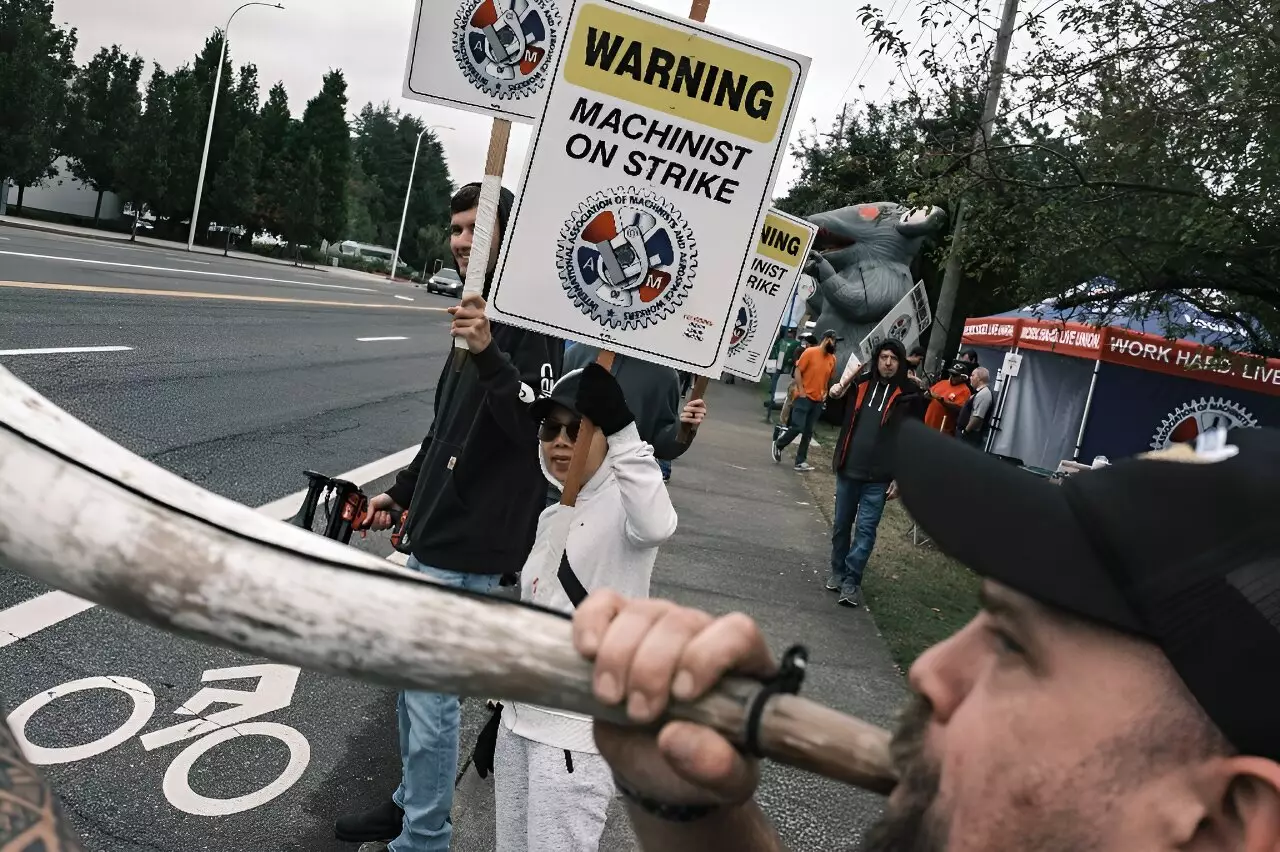In a significant turn of events, negotiations between Boeing and the International Association of Machinists and Aerospace Workers (IAM) have reached a standstill, resulting in a strike that has seen approximately 33,000 employees walk off their jobs. This labor unrest erupted after workers in the Pacific Northwest rejected a contract proposal, leading to the shutdown of critical assembly plants for the 737 MAX and 777 aircraft models. The ramifications of this strike extend well beyond the company’s factories, affecting the broader aviation industry and its stakeholders.
The IAM announced recently that discussions with Boeing had “broken off” without a resolution, casting a shadow on the prospects for a swift end to the labor dispute. The union expressed their willingness to return to the negotiating table, whether directly with Boeing or through mediation by the Federal Mediation and Conciliation Service (FMCS). This openness to further dialogue highlights the complex nature of labor negotiations, where both sides must navigate a landscape filled with differing priorities and expectations.
Contrastingly, Boeing has conveyed its readiness to continue negotiations, emphasizing a desire to rebuild relationships with its workforce. The company articulated its commitment to negotiating in good faith, showcasing a willingness to engage positively with the union. However, this commitment may be overshadowed by the stark realities of the negotiation outcomes thus far.
In a bid to address the workers’ grievances, Boeing recently proposed what it termed its “best and final offer,” which included a substantial 30 percent wage increase for striking employees alongside the reinstatement of an annual bonus. However, the union has criticized this offer as inadequate, particularly regarding critical issues surrounding pension plans. Workers have expressed deep concerns over Boeing’s decision to keep its defined benefit plan unfrozen, which is seen as a crucial component for many employees’ long-term financial security.
The union’s statement highlighted that, while discussions were held, they failed to make tangible progress on key points such as higher pay, expedited wage progression, and enhanced paid time off. These unmet demands illustrate a significant disconnect between workers’ needs and corporate strategies, a factor that could prolong the strike and intensify the impact on the company’s operations.
Implications for the Future
As the strike continues with no resolution in sight, the ramifications for Boeing could be substantial. Critical assembly lines have halted, posing significant financial implications not just for the company but for the entire aviation supply chain. Additionally, the protracted nature of labor disputes often leaves lasting scars on both employee relations and company reputation.
For the employees, the outcome of these negotiations will be pivotal in shaping their job security and financial futures. The IAM’s determination to fight for their rights reflects a broader trend in labor movements across various industries, where workers are increasingly advocating for better pay and benefits. As both parties regroup and assess their positions, the path forward remains uncertain, but it is clear that finding common ground will be essential in resolving this labor dispute and reinvigorating the Boeing workforce.

